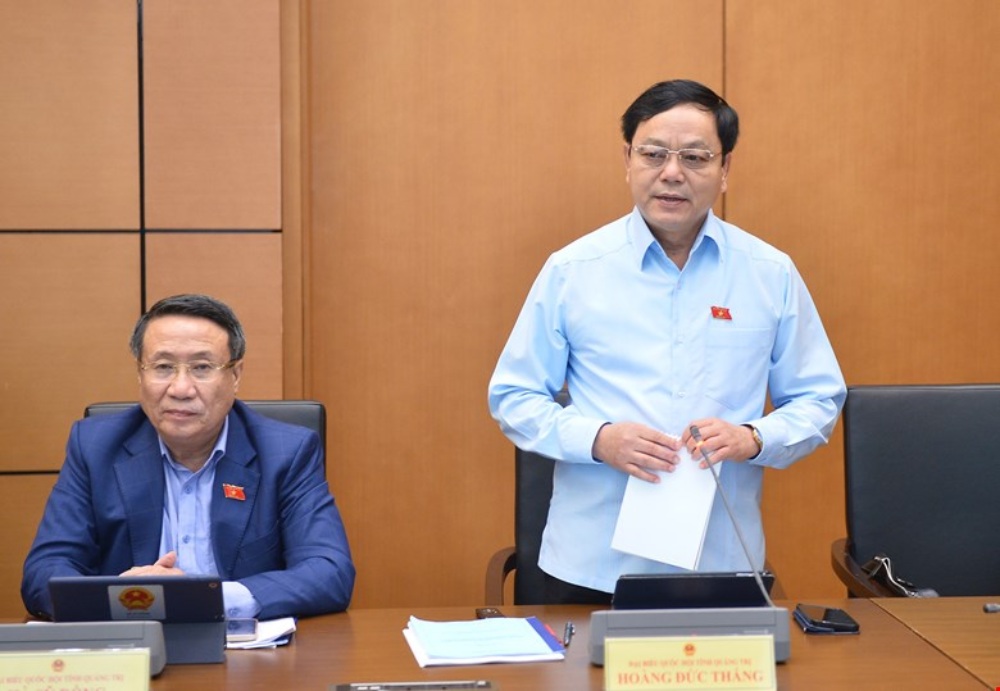On the afternoon of May 20, the National Assembly discussed in groups the draft Law amending and supplementing a number of articles of the Law on Credit Institutions.
The draft amends and supplements the authority to decide on special lending in the direction of transferring the decision-making authority from the Prime Minister (in cases of special lending with 0% interest rate/year, special lending without guaranteed assets) to the State Bank.
This is to thoroughly decentralize and delegate authority to the State Bank in deciding on special lending; strengthen the role and responsibility of Government members.
Delegate Hoang Duc Thang (Quang Tri Delegation) said that with the development of science and technology, banking activities always face liquidity risks that change very quickly and on a large scale.
reality also shows that the risk of mass withdrawals does not only occur in weak commercial banks, but large-scale commercial banks that operate effectively may still face the risk of mass withdrawals due to objective incidents.
The delegate said that the case of Silicon Valley Bank - SVB of the US in early 2023 is a typical example.
The use of electronic banking applications, internet banking or other electronic applications also makes mass withdrawals happen faster.
Therefore, liquidity support for commercial banks through special lending needs to be decided as quickly as possible. Therefore, considering transferring the authority from the Prime Minister to the State Bank will meet this quick and urgent requirement in practice.
From the above analysis, the delegate found that it is very necessary for the National Assembly to consider and approve the draft Law amending and supplementing a number of articles of the Law on Credit Institutions.

Delegate Nguyen Manh Hung (Can Tho Delegation) said that there should be regulations requiring banks and credit institutions to strictly implement regulations on credit screening and appraisal based on customers' ability to pay.
According to the delegate, it is necessary to establish an effective process to avoid loosening lending regulations and regulations on collateral assets. When consequences occur, they think there is state support.
Regarding the authority to decide on special lending, the drafting agency proposed to transfer the authority from the Prime Minister to the State Bank.
According to the delegate, this problem is very common in other countries. For our country, this is a reform step to deal with problems arising with rapidly changing problems. For example, cases of mass withdrawals without early handling will cause serious consequences, break the chain, and lose the safety of the financial system.
Delegate Thai Quynh Mai Dung (Vinh Phuc Delegation) also said that amending the authority to decide on lending in particular is an appropriate measure, creating a legal basis for management agencies to take measures to handle and prevent the situation of mass withdrawals quickly and promptly, avoiding the risk of system failure.
According to the delegate, the regulations on seizing assets guaranteed by bad debts, assets guaranteed as evidence in criminal cases, exhibits and means in administrative violations are institutional breakthroughs, aiming to break the " bloody blood of bad debts", promote increased credit capital in the economy.











